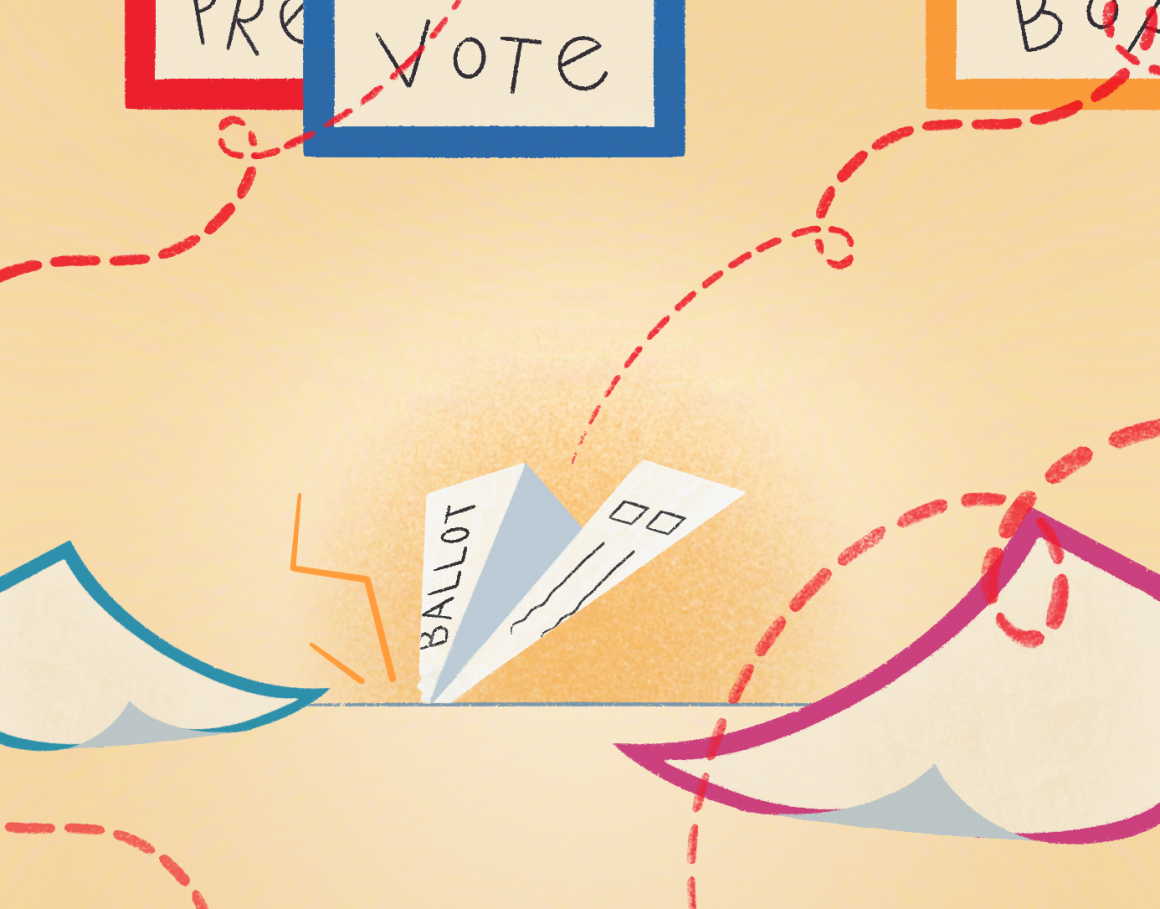
Why you should vote in the federal election
By Farah Refaey, October 18 2019—
With the federal election just around the corner, there are many decisions to be made. Everyone is having thoughts along the lines of “What party deserves my vote?” “Are there really more than two options?” and “Why does Andrew Scheer look like two children in a trenchcoat?” But a question less frequently explored is: “Should I vote?” I think you should vote. I think you need to vote. Abstaining from voting in the 2019 Federal Election is not the way to go, and here are some reasons why.
Abstaining from voting can be considered one way to get your point across. It is a demonstration, a protest in a way, of your discontentment with the current system. However, if there is no reason to be disdainful about the current system, there is no point to be made. Abstinence from voting is only a valid means of getting your voice heard if your opinion is that the current system in place is dysfunctional or not a form of true democracy. If that is true, then in addition to abstinence from voting, you need to be actively trying to —or at least wanting to — change the current system so that it does work for you. In this case, I don’t believe that this claim can be made. The claim that the current system we have in place in Canada is not functional is one that is far-fetched and unsubstantiated. We can certainly say that we have a functioning democracy.
Not being educated on current issues or simply not caring are inadequate reasons not to vote. You are allowing yourself to be held back by your lack of education. It is prohibiting you from being able to make a choice for yourself. Being uneducated on politics and election issues means that abstinence from voting is, in a way, being imposed upon you. If you do not believe that it is your civic duty to vote, it is at least your civic duty to become educated about your options when it comes to voting or not voting. Abstaining from voting must be an educated choice that you have made, and a conclusion that you have arrived at as a result of careful contemplation. You must be able to confidently say that none of the options available accurately represent you and the issues that concern you. I doubt that is the case for the vast majority of the Canadian population. We are lucky to have the diversity we have in this country and that includes diversity of opinion. We are privileged to have a government that we can influence through elections. I urge you to take advantage of that, and to make your voices and opinions heard. For a democracy to truly be functional, it requires the participation of all of its citizens. Democracy places the power in the hands of every citizen and by not voting, you are giving that power to somebody else. You are giving the power of your vote to somebody who may have opposing views from you, who does not share your core values and who will use it to make decisions that may negatively influence your life.
The election is going to occur whether you decide to take part in it or not. Decisions will be made on your behalf whether you weigh in on them or not. You deserve to be consulted on policies and decisions that will inevitably affect your life. This past April, we had our provincial election in Alberta. Jason Kenney has been the premier of our province for mere months and he has already made changes that affect our lives. One of Kenney’s major campaign promises was to balance the budget, in part by freezing education spending. Expected cuts to public school funding lead to larger class sizes and reduced availability of resources such as on-site school counselors. More relevant to us as university students, a large focus has been placed on government spending on universities. Alberta universities spend on average fifteen-thousand dollars more per student than universities in other provinces, a difference Kenney plans on eradicating. This will lead to higher tuition costs, less campus resources, staff cuts and potentially even the closing of at least one post-secondary institution in Alberta. The effects of these changes on my life and yours are real. There are significant ramifications that we are now forced to adapt to, and this was only a provincial election. These changes are only examples of ways elections lead to changes that affect us all. Consequences and stakes are both higher in a federal election.
Whatever the results on Monday night are, each and every one of our lives will be changed in some way. I hope that these changes will be positive. I hope that these changes will reflect our values and our opinions. I hope that you will cast your ballot on October 21.
This article is part of our Opinions section and does not necessarily reflect the views of the Gauntlet‘s editorial board.
